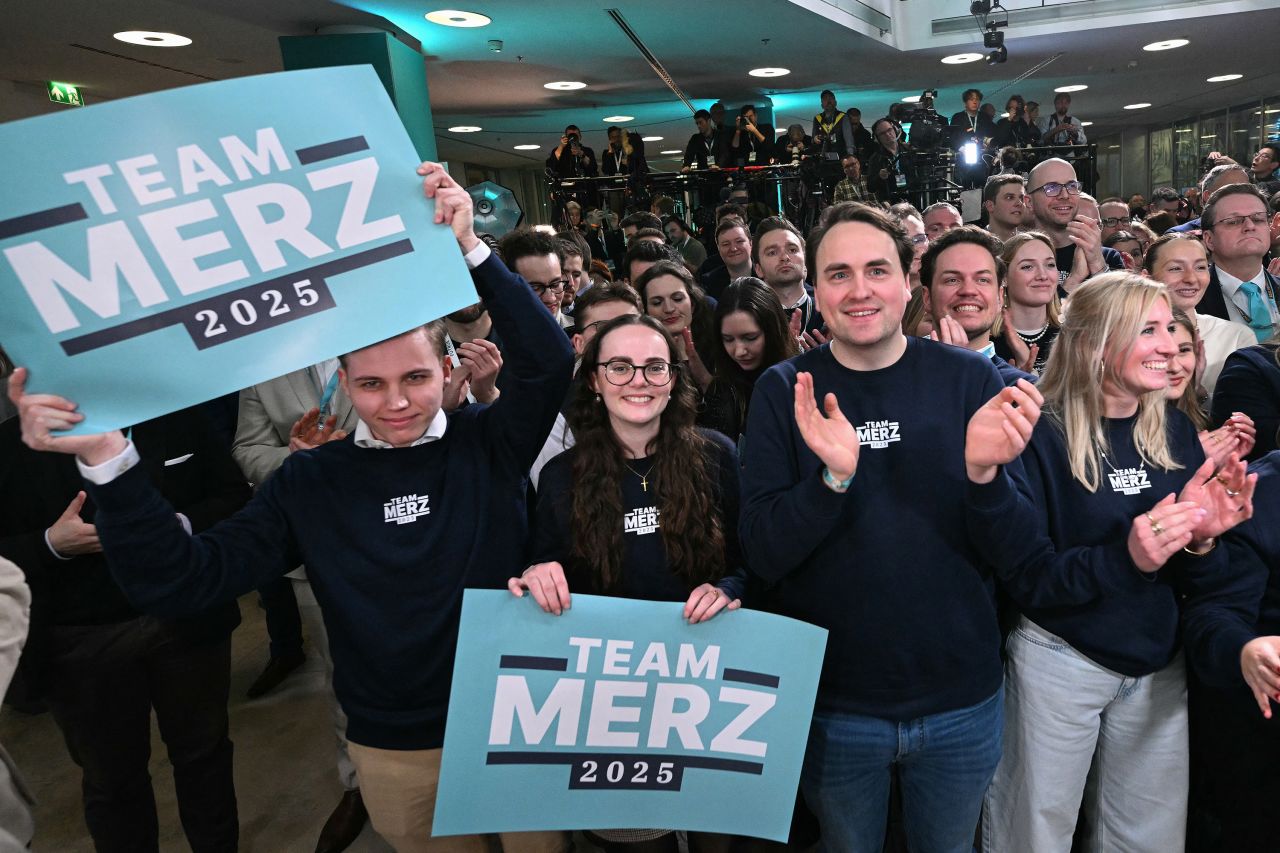What we covered here
• Friedrich Merz is likely to become the next German chancellor after his conservative CDU party topped the vote in elections, exit polls project. The stuttering economy and immigration were major voter concerns.
• The far-right Alternative for Germany (AfD) almost doubled its vote share and surged into second place. But it is likely to be frozen out of power as other parties are refusing to work with it.
• SPD, the party of current Chancellor Olaf Scholz, slumped to third place, with just 16% of the vote – its worst showing in decades.
• The election came against a backdrop of the Trump administration transforming historic security ties with Europe and moving ahead with peace talks on Ukraine.
• Whoever wins, coalition talks are a near-certainty. Single parties rarely win majorities in German elections so Merz will have to open talks with other parties on forming a government.























